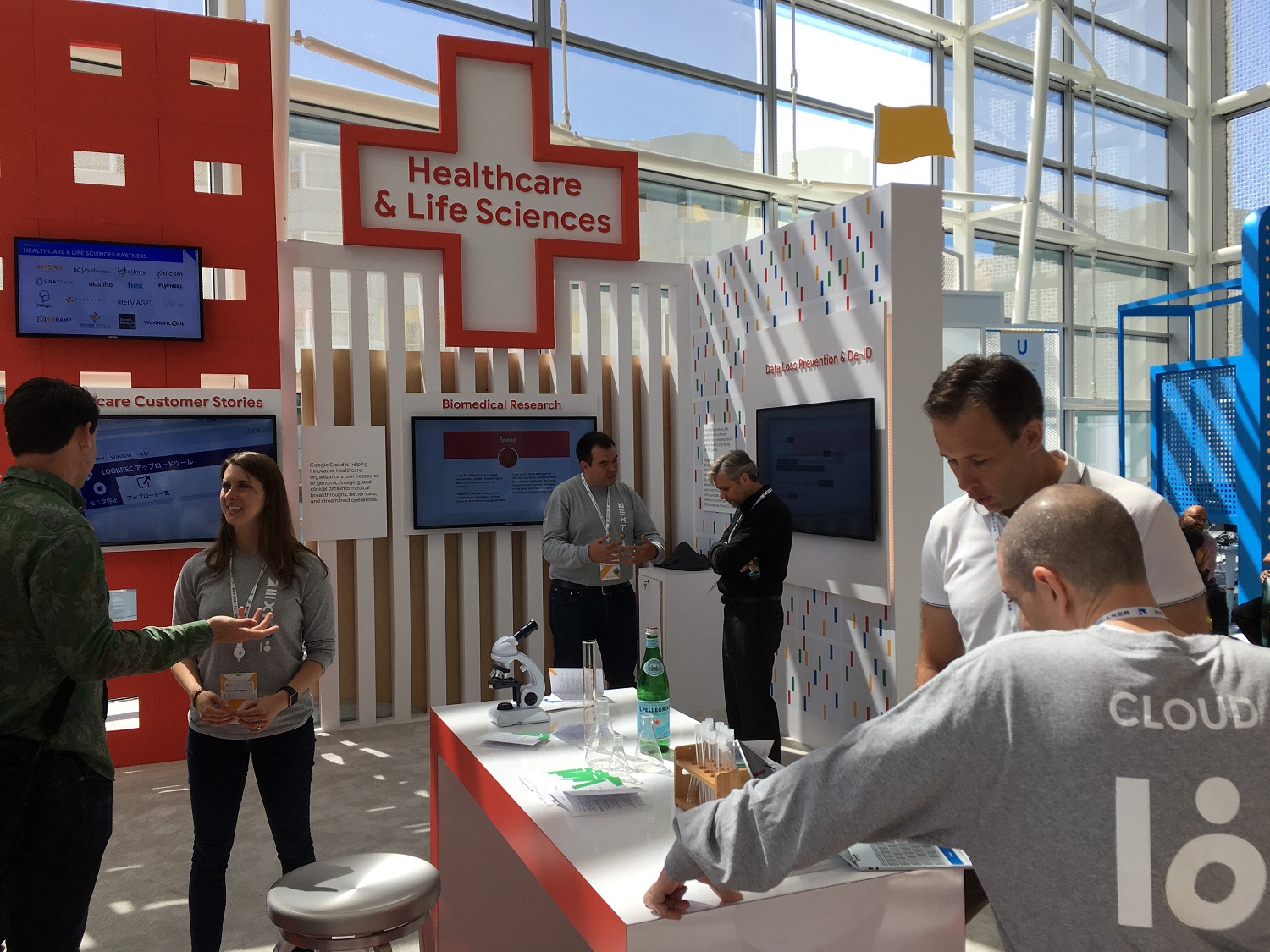 CLOUD
CLOUD
 CLOUD
CLOUD
 CLOUD
CLOUD
As a digital tsunami engulfs the medical profession, Google is stepping in with life preservers.
The National Institutes of Health, the largest public funder of biomedical research, announced Tuesday that it would join with Google Cloud on an initiative to broaden access to research data, utilizing storage, computing and machine learning technologies.
“Doctors and researchers are so happy to have all of their data now in the cloud,” Google Cloud Chief Executive Diane Greene said at the company’s Cloud Next conference in San Francisco.
The collaboration with NIH is part of the organization’s STRIDES initiative or Science and Technology Research Infrastructure for Discovery, Experimentation and Sustainability. The agreement with Google Cloud creates a framework for medical researchers at NIH and over 2,500 academic institutions to share large biomedical data sets in the cloud as the industry works towards finding cures for a wide range of diseases.
“With help from Google Cloud, we can begin making great strides to accelerate discovery,” Andrea Norris, chief information officer at NIH, said during a conference presentation on Tuesday.
Google’s involvement comes at a critical time when the medical profession is dealing with an avalanche of data, generated in large part by the Human Genome Project. This ambitious effort was launched in 1990 to identify and map all of the genes in human DNA.
Advances in areas such as single cell genomics have generated new initiatives, such as the Human Cell Atlas project, to create a comprehensive reference database for better understanding human health and diagnosing disease. Genomics and the data generated by basic medical exams adds up to a mountain of crucial information.
“We’ve got a data deluge coming now,” said Toby Cosgrove, cardiac surgeon and former CEO of the Cleveland Clinic. “There’s as much information in one mammogram as there is in the entire New York City phone book.”
As if to underscore the importance of Google’s contribution to the medical field, the company’s former executive chairman, Eric Schmidt, made an unannounced appearance to lead one panel discussion on Tuesday afternoon. He emphasized the importance of leveraging cloud technologies for data management to take pressure off physicians who are increasingly preoccupied with managing the endless flow of information.
“Physicians are under enormous stress today,” Schmidt said. “There’s a huge burnout problem.”
Schmidt was joined for his session by Eric Lander, president and founding director of the Broad Institute, and Jeff Dean, the lead of Google.ai. Lander described how technology in the medical profession is paving the way for researchers to read information from each cell, an advancement that could significantly increase data management challenges.
“Now we’re moving to the point where we really need to be thinking about truly massive data,” Lander said. “You can’t be a biologist today without data.”
Individual cell analysis represents an evolving model in the biomedical profession known as precision medicine, personalized health care based on factors like place of residence, work responsibility and family history. At the forefront of this model is the All of Us Project, an NIH-sponsored initiative to enroll 1 million U.S. citizens and gather data on a wide range of biological, behavioral and environmental influences.
Verily, Alphabet Inc.’s life sciences research arm, is providing the project’s data center resources and developing open source computational tools, in cooperation with Lander’s Broad Institute. Advances in open source machine learning capabilities are opening up intriguing possibilities for the medical field as researchers look for new ways to exploit genomics data.
Dean offered a glimpse into what could be coming during his discussion with Schmidt and Lander. His team at Google.ai has been working on fundamental advances in technology for human vision, where machine learning models can be trained to take images from the back of the retina and assess whether there are signs of disease which could cause blindness.
“We now have machine learning models that are not only as good as board-certified ophthalmologists, but retinal specialists as well,” Dean said.
Dean was significantly involved in the creation of TensorFlow, an open-source software library for machine learning applications. In 2015, Google decided to open-source TensorFlow, an action which Dean strongly believed was the right way to go. “We wrote it in a way that was easy to open-source,” said Dean, describing his view on the potential of machine learning tools for medical research. “That’s proved to be a good choice.”
But Schmidt, ever mindful of the company’s competitive position, was not quite as generous in his view of open-sourcing the technology. “Congratulations for giving all this to our competitors!” Schmidt jokingly exclaimed.
All in the name of science, of course.
THANK YOU